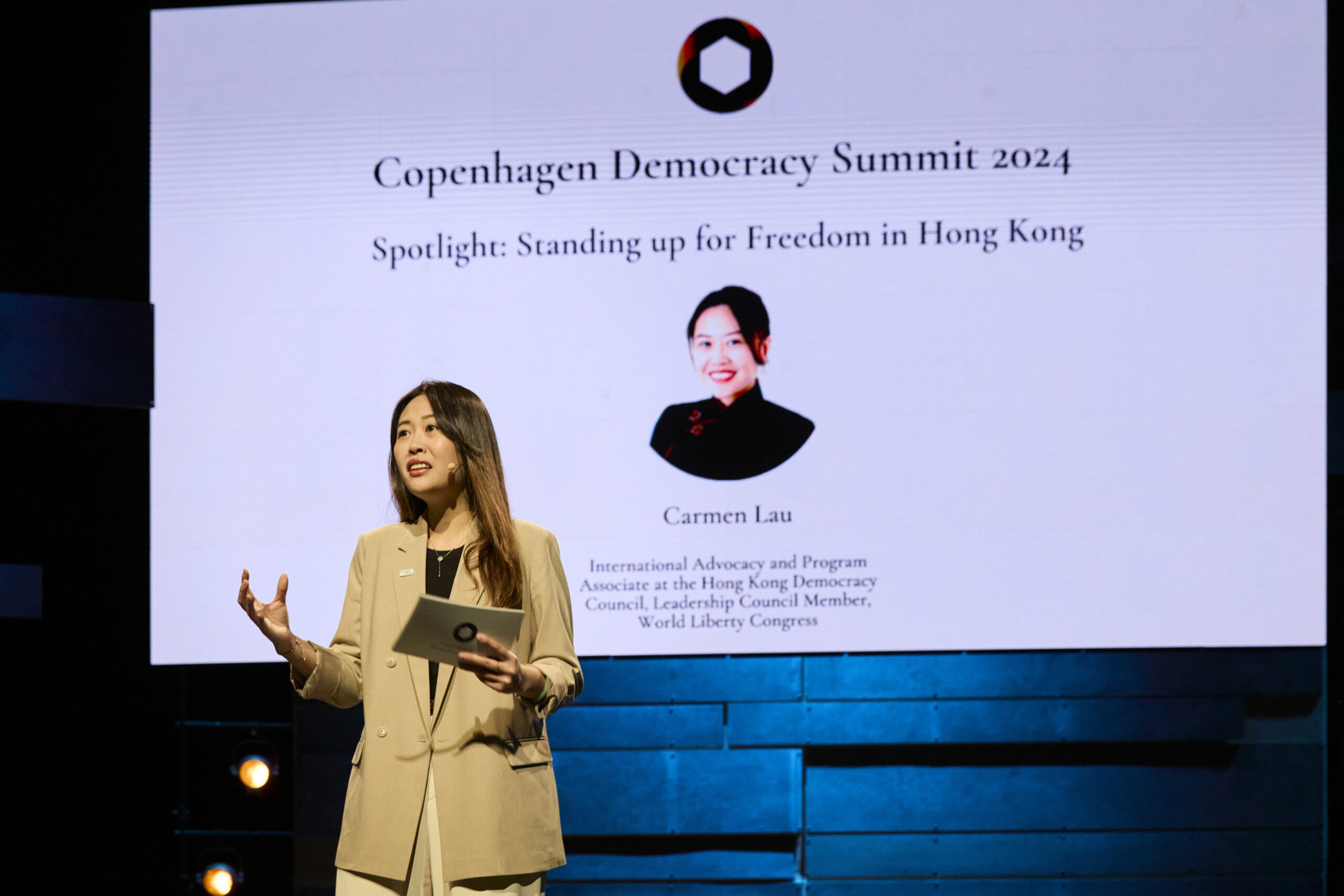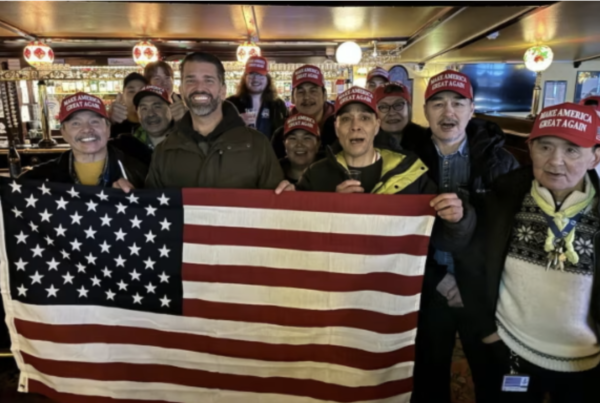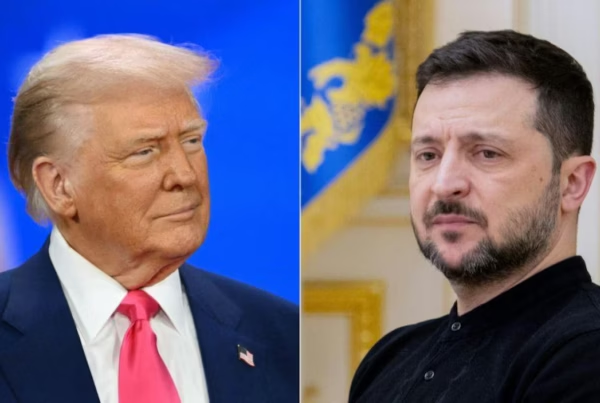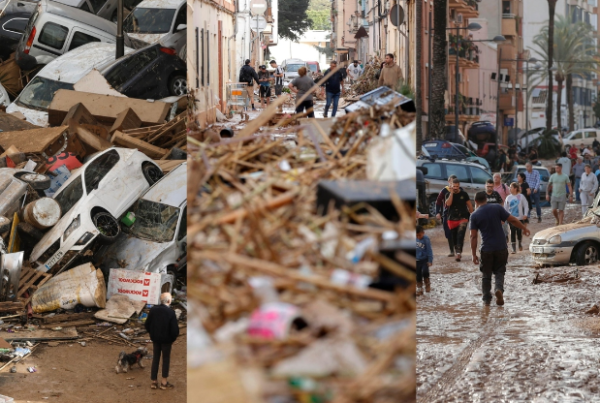Hong Kong activist Carmen Lau on fighting for democracy, resisting tyranny, and persevering through fear
On March 28, before the conference Living Under Tyranny, guest speaker Carmen Lau sat down with The Sundial Press to share her story. Ms. Lau speaks like someone who has lived two lifetimes by thirty. Her voice, however calm, echoes with the sort of urgency that commands attention. Her story is not just about politics—it connects to identity, memory, and the defiant preservation of hope. Ms. Lau is one of many Hong Kongers living in exile with a bounty on their heads. Hers is set at HK$1 million, placed by Hong Kong authorities under the National Security Law, for alleged crimes including “inciting secession” and “collusion with foreign forces.” But in this conversation, we shift the spotlight away from the charges and the headlines to see the human being behind them.
“I didn’t even tell my parents.”
Born in 1995, only two years before the transition of sovereignty of Hong Kong from Britain to China, Ms. Lau has always been deeply attuned to the city’s shifting political identity. She describes her childhood as free and rather calm: “I remember being a toddler playing in the playground. Even the busiest city in the world—Hong Kong—had a kind of quiet back then. There was peace in the city.” That peace, she says, started to unravel as Hong Kong transitioned from a British colony to what she calls “a Chinese colony.” Her political awakening began in 2012, during the national education protests, when Beijing attempted to insert patriotic propaganda into school curriculums. “My principal warned me that if I continued organising protests at school, I would be banned from the public exam,” she said “That exam is everything—it’s how you get into university. That was the first time I felt the weight of oppression.”
From there, her activism only intensified. She studied political science, participated in the Umbrella Movement, worked for a pro-democracy legislator, and eventually ran for office herself. “I didn’t expect to win… but I did. And I kept my promise to serve the community.” But even service came at a cost. In the aftermath of the 2019 pro-democracy protests, Ms. Lau was surveilled, harassed, and watched as colleagues and mentors were arrested. Her decision to flee came fast and painfully: “I got the ticket just a week before. I didn’t tell anyone—not even my parents until three days before I left. I lived with them. I just didn’t know how to say goodbye.”
Fear in Four Acts
Ms. Lau’s story is threaded with moments of fear—but they are not all the same. Some arrive with the sound of sirens, others in quiet letters slipped through a mail slot. She recalls four moments that marked the emotional and psychological terrain of her life in exile. The first was at Hong Kong airport in 2021. As she scanned her ID to leave the country, an alarm sounded. Nearby police looked up. One officer checked her phone, then stared at her: “I knew I was on a list,” she said. “I just didn’t know which one.” The second came in San Francisco, protesting Xi Jinping’s visit alongside Tibetan and Uyghur activists. They were outnumbered by Chinese nationalists wielding flagpoles like weapons—“They surrounded us. I got bruises. People were beaten. Phones were snatched.”
The third was deeply personal: Hong Kong police interrogated her aunts and uncle, distant relatives she had not spoken to in years. She remarks, “If they question everyone in my family, it could go on for a year.” And the fourth—perhaps the most chilling—was when her UK neighbors received a letter from Hong Kong detailing her charges and offering a reward for her capture: “They even listed my height. They told people to hand me over—dead or alive.”
“Home Is Not Just a Place”
Ms. Lau speaks with deep affection for Hong Kong—not just the city, but the culture, the food, the language. She recalls her childhood: “My mother’s family is from Tai O, a tiny fish[ing] village. We used to see pink dolphins there. Now they’re almost extinct… just like the fate of Hong Kong.” Now, living in the UK, she has made it her mission to preserve cultural memory as fiercely as political advocacy: “We teach locals how to play mahjong. We cook Hong Kong food. That’s how we bring the next generation into our home, away from home.” For her, culture is resistance—erasing the language, rituals, and food means tyranny wins, so they fight by remembering.
Not all Hong Kongers who live abroad share the same sentiments. Ms. Lau is clear about the complexities of the Hong Kong diaspora: “In the UK and Canada, you have more recent migrants—so there’s more activism, more noise. In the US, most Hong Kongers are older generations. They don’t even call themselves Hong Kong Americans—just Americans.” Even among activists, unity is rare. She details that “there are localists, independents, moderates. Some want to return to British rule. Some want independence. Some want to democratise China. We can’t even agree on what Hong Kong is.” Still, she believes there is more that can be done—and must be done, especially by host governments: “The UK, the US, the EU—they have a responsibility. If you claim to stand for democracy, then you can’t turn your back when it’s under threat.” She is particularly critical of cuts to international aid—“When powerful democracies cut funding for civil society, they create a vacuum—one that authoritarian regimes like China are happy to fill.”
If Hong Kong Were Free Tomorrow
When asked what she would do if Hong Kong were suddenly free, Ms. Lau did not hesitate. “Of course, I would get a flight ticket. No matter how expensive it is, I would go back.” The answer bursts out of her, immediate and certain. There’s no political strategy, no hesitation between her words—just longing. The vision of return is not abstract. It is visceral. It is about walking familiar streets, hearing Cantonese in the air, eating the food of home, and no longer needing to wear a face mask or live in hiding. For her, the dream of freedom is personal, physical, urgent. It is not just about restoring democracy—it is about going home.
兄弟爬山 各自努力: “Brothers climb the mountain together, each forging his own path.”
Ms. Lau does not describe herself as fearless—but she does describe herself as free. Not in the geographical sense: her home is now thousands of kilometres away, her name marked by a government bounty—but in the sense that her voice is still hers, and that she refuses to let anyone silence it. Her story is not just one of exile, but of purpose. It is a testimony to the weight of memory, the power of community, and the quiet, enduring defiance of someone who knows what it means to lose a home—and still fight for its return. In a world that so often moves on, Carmen Lau has chosen not to. She holds the line: for those in prison, for those in silence, and for those still dreaming of going home.
Other posts that may interest you:
- Can Arcane Save Riot Games?
- All Hail the Demissance—Who Will Win (and Who Should) at the 97th Academy Awards?
- What Connects Patti LuPone, Nicole Scherzinger, and the Redesign of the Ten-Dollar Bill? Broadway.
Discover more from The Sundial Press
Subscribe to get the latest posts sent to your email.





